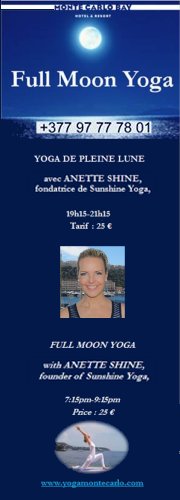Mary-Jo Delaney
Our Future Health
Our Future Health or Homesick with no health insurance
I am homesick with no health insurance (HNHI); it should be declared an official status for Ex-pat Americans who can no longer indulge in the fantasy of “going home someday.” I'm a health insurance political refugie; if I wanted to live in the US again, I would either have to work for a company that provided me with coverage or pay for private. Otherwise, the present system in my birthplace would eventually kill me, bankrupt me or both. I can no longer “afford” to be an American.“There's no place like home, huh?”
Actually there is no place like the US in all of western civilization, concerning healthcare systems. It is the only country that still allows big business to profit on illness, illegal in Europe and throughout many parts of the globe. Bear in mind that the controversy is over health insurance, not health care. Health care is another subject, a personal issue that has become wholly public whether you are American or not. In the past, we did not know or believe that we could do anything to influence our health other than eating sensibly, avoiding harmful habits and finding ourselves a good doctor. In the present Information Age, it is becoming increasingly difficult to say "If only I had of known."
Although Europeans don't find themselves in the same quagmire as do the Americans over socialized heathcare, here there is a general propensity to maintain the medical status quo. The French claim to have Europe's most highly trained doctors and physicians, yet health insurance does not cover osteopaths, chiropractors, nutritionists and any number of other highly legitimate, proven alternative health practicioners. Cost issues aside, I am stunned by the aggressive, put-me-in-my-place reactions I provoke in French doctors, females included, when I ask about alternative treatments. It is a politely unspoken, 'Tais-toi'.
The benefits of natural preventions and cures have already been changing peoples lives in very significant ways. All indicators point to a future society that will need to take more personal responsibilty for its own healthcare. For women especially, who are mothers, wives, daughters to ailing parents and overall caregivers, this responsibility will reach beyond our personal habits and decisions, to those of our families and friends. Information will begin to replace fear, and once the fear is lifted, change will follow. The question is seldom 'if' things will change, but 'how long' the change will take. How long until a society accepts and internalises change, into its own psyche and into its culture?
Take smoking, for example. In 1527, Bartolomé de Las Casas recorded Tobacco as “addictive and a health danger.” Jump 371 years forward to 1898 when the state of Tennessee's Supreme Court upheld a total ban on cigarettes, ruling they are "not legitimate articles of commerce, being wholly noxious and deleterious to health." Two years later, strong anti-cigarette activity existed in 43 of the America's 45 states.
Yet smoking was thriving when I came into the world. Watch a old movie, or 'any' European movie, for that matter, and it will make you gasp for air. Then came a slow, downward spiral. Too many smokers were dying, making it a health issue, then a long, drawn-out legal issue. Regulated advertising, a FUMER TUE warning the size of a bumper sticker on cigarette packaging and higher insurance rates were the results. With last year's ban on smoking in public places and the recent outrageous price increases on cigarettes, the nasty habit is clearly destined to be snuffed out almost completely. And to think that it took a mere 482 years!
Now that I can enter a bistro without being asphyxiated, I have a new pet peeve: Cancer. Why aren't we discussing the pro's and con's of such alternative cancer treatments as: Insulin Potentiation Therapy (IPT), Intravenous Vitamin C (IVC), Vitamin B17 (Laetrile), Detoxification, Enzymz/Metabolic Therapy and Aerobic Stabilized Oxygen. What are the most recent statistics, if any, on the survival rates of patients using alternative methods? What are the costs and availabity of these treatments? What medicines or natural products are required for these cures and how do I get them? Answer: 'Tais-toi.'
For better or worse, celebrity involvement can advance a cause by quantum leaps. In her new book Knockout, American actress and health guru, Suzanne Somers, asks many of these same questions. Her answers elaborate on alternative therapies for preventing diseases such as cancer, including protocols using bioidentical hormone replacement therapy. Somers may be a 'has been' actress, but she's a two time cancer survivor, and she will not be intimidated by the powers that be.
“In Western medicine, most treatments are prescribed according to a one-size-fits-all approach that doesn’t acknowledge the inherent differences between men’s and women’s bodies,” says Somers. “Only within the past few years has the medical field started to look at how disease affects men and women differently.”
Radical. Maybe the most radical contribution to women's health care since Mitterand's passage of RU486. But it begs the question: Are you prepared to wait for Pamela Anderson to find a lump in her breast before women can alter society's attitudes towards alternative care? I'm not. The next few articles that I will write for The Riviera Woman will explore some of the alternative treatments mentioned here, that are being used today by cancer patients, may of whom came to them only when all else failed.
Even if bioidentical hormone replacement therapy doesn't appeal to you, the articles will help to define what it means to have true health. In the future, this will not only mean taking care of your own body, but it will require a basic understanding of root causes, the true sources of our illnesses, addictions and habits. It will take recognizing changing lifestyles in a changing world.




